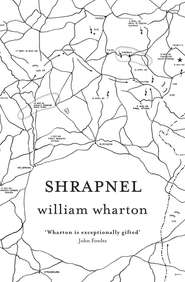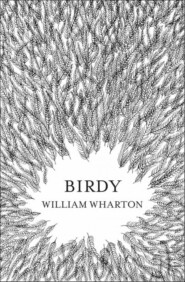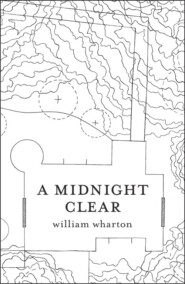По всем вопросам обращайтесь на: info@litportal.ru
(©) 2003-2024.
✖
Pride
Настройки чтения
Размер шрифта
Высота строк
Поля
I’m lying with the second part. The devil in me made me do that. But I’m wanting so much for her to let me keep Cannibal, not to get excited and start saying no before she can think too much about it. She stoops down beside Dad. She touches the back of Cannibal lightly as if she’s afraid fleas will climb up her arm.
‘Why, Dick, this cat doesn’t have a tail. It doesn’t look like a cat at all.’
‘Dearest, I’m not even sure it is a cat. Have you ever seen anything so tiny? And look at this color. I’ve never seen a cat this color, have you?’
And that’s the way it happened. That’s the way I got to keep Cannibal. Mom insisted I buy flea powder and rub it into the fur. Dad said I could get some cat food and he’d take it out of my ‘salary’ when we started building porches again. He turned to Mom.
‘This is one of the things we can afford now I’m back working with J.I. But, Dickie, I have to tell you, I don’t think this tiny thing can live very long. Be prepared for him to die.’
The rule is Cannibal must stay in the cellar and under no circumstances come upstairs. When he makes messes I’m to clean them up. The first time Mom smells cat in the cellar, out Cannibal goes with the other alley cats in the alley. Dad says he’ll make a sandbox; he tells me where there’s some sand at a construction site on the other side of Long Lane.
I’m so happy I can keep him I have a hard time remembering all the things I’m supposed to do and not do. Dad passes Cannibal into Laurel’s hand and works his finger out of Cannibal’s mouth. Cannibal looks up into Laurel’s eyes and I’m afraid he’s going to spring for her jugular vein. But he sits quietly there, crouching, ready to spring. If he springs he’ll only fall off onto the cellar floor. I guess he has that figured out already because he doesn’t do anything, only keeps his eyes open, shifting from side to side and hissing if one of us makes any kind of fast move.
Dad and Mom go back upstairs. Laurel and I stay down with Cannibal. I know we’ll have great times playing with him. I only hope Dad isn’t right and that Cannibal will live. I know if there’s anything I can do to keep him alive, I will.
PART TWO
Sture Modig was born in 1896 to Swedish immigrant parents on a 320-acre dairy farm in Wisconsin. His parents had worked fifteen years as domestics and saved $2,000, with which they’d bought their farmland. The land cost $20,000. They took a $10,000 first mortgage and an $8,000 second.
They soon had a team of horses, three brood sows and forty milking cows. They were living in a waterless, toiletless frame house when Sture was born. Sture’s father had first built the barn for his animals while he lived with his bride in a combination hut-tent. Then he built the house so they could have children before it was too late.
Sture’s parents had married in their mid-thirties after the long thrifty years in service. Sture was born when his mother was forty. She almost died in childbirth, so he was an only child.
Sture was the sole luxury in his parents’ lives, and from the beginning it was apparent he was truly an exceptional person.
Sture Modig was one of those few people who live up to their names. Modig in Swedish means ‘brave’, and if there is one word to describe Sture both as child and man it’s ‘brave’; he did not seem subject to the normal fears with which all of us are assailed. He was also ‘brave’ in the German sense of the word, brav, that is: well-behaved, willing.
Sture walked unaided at nine months and seemed to have an unnatural ability for converting sound into language. He was speaking words at eighteen months and could converse clearly at two years. Soon, he could also imitate, and seem to converse with, most of the animals around which he lived.
At four, he could settle a frisky calf or cow using only sounds he made with his mouth. He spoke with the barn cats and the farmhouse dog; with the pigs. He could imitate the sounds and call to him most birds, including domestic chickens and ducks.
Sture liked helping his parents. By five he was helping with household tasks such as dusting, sweeping, straightening; hauling water from the well. He was so small he carried the water in a quart milk pail. He’d go the fifty yards to the well four times as often as his mother, but in the end he’d fill the large water container in the kitchen.
At first, his mother allowed Sture to help only to keep the child busy, but soon realized his value. He was a consistent, quiet worker and his ‘play’ seemed to be what everyone else would consider drudgery.
Already, at that young age, Sture wanted to be of some good. It might be claimed this was because his parents were older and they doted on him, spoiled him in some way, expected too much of him; but it became more apparent with time this was not the case.
Sture was somehow unique in our world. His failing might have been that he didn’t know how to express love. He admired, respected his parents, but he was never overtly affectionate. This could come from the traditional Scandinavian impassiveness: neither of his parents easily expressed their feelings, either.
It could also come from their years of servitude. They transferred their servile allegiance to their animals and even more so to Sture. He grew up feeling a guilt for the service, the love, the admiration he received, the joy they took in him. He reciprocated, in a sense, defended himself, by serving them, devotedly, to the best of his ability. It was a battle of goodness, of kindness, but there wasn’t really much of natural spontaneous love.
Sture learned to milk a cow before he was seven. His small hands could just get around an extended teat but his strength, his will, and his communion with animals more than made up for this minor deficiency. The cows seemed to give him the milk. Sture could get more milk from a cow than his father or mother. At first, Sture’s father let him work around the barn with the animals only to give him something to do, but he, too, became increasingly dependent upon him.
Nothing was too hard, too dirty, too monotonous for Sture. He mucked out the pigpens with a miniature shovel, singing. He broke up bales of hay and carried fodder down from the granary in the largest armfuls he could manage. And, all the time, he talked to the animals, seemed to keep up a running conversation with them.
By the time he was seven, both his parents were worried about Sture. He was too good; in some strange way he made them feel guilty. He was so happy all the time, so helpful, so willing. It wasn’t natural. He wasn’t in any way like a normal seven-year-old. But there was no one else to talk with about this problem; their farm was isolated and the nearest communities were French-speaking.
Mr and Mrs Modig spoke only English with Sture. They wanted him to be a real American, to have the advantages of a native born. However, they spoke Swedish between themselves. They thought of it as their private language.
Meanwhile, Sture learned to speak both Swedish and English; he spoke Swedish to his parents the way he spoke cow to the cows or dog to the dogs.
Even more amazing, his English was less accented than that of his parents. As a very young boy, he was already learning to read English on his own from the pictures in the catalogues his father tore up to be used in the outhouse. He learned how to read by himself because reading was not high on the scale of sensible skills in the eyes of his parents.
Sture didn’t go to school until he was eight years old. By that time, he was doing about half the chores around the house: wood hauling, chopping, water carrying, sweeping, scrubbing floors. He was the first out of bed every day, starting a fire in the kitchen range or the pot-bellied stove in the sitting room. After this, he’d go out to the barn and join his father in the milking and other animal chores.
At calving time he’d often sneak away in the night to check that everything was all right. Twice he saved the lives of valuable milking cows in birthing by ‘knowing’ something was wrong even before his father was aware of it. The animals confided in him and he could ‘read’ their every movement as well as interpret their sounds.
His parents were glad when it came time for Sture to go off for school. They were concerned about his ‘unnaturalness’. At the same time, they were sorry to lose him, not to have his cheerful smile, his singing, talking to the animals, and especially his continual helping hand. The day he dressed for school the first time, wearing his only pair of shoes, his father spoke to him.
‘Sture, I know you’ll be a good boy at school.’
Sture nodded his head and smiled. It never occurred to him to be anything else; he could probably not even conceive of an alternative, but he listened.
Among other things, Sture was a good listener. He listened to everything and everybody. He listened to the grasses blowing, the insects buzzing. He could lie in a field and listen to the different sounds and tell without looking whether there were gnats, fleas, beetles, crickets, ants or grasshoppers chewing the grass beside him, flies, wasps or bees buzzing around his head.
He listened to anyone as if he really wanted to hear what was said. When he listened, one knew he not only heard the words said but understood their meaning and the feelings behind them. One felt Sture also heard a person’s voice as a thing separate, a personal music, not even heard by the speaker, but heard by Sture when he listened.
Sture’s dad continued: ‘I know you can already read better than your mother or I, but don’t ‘stick out’ in the class. Everything is so easy for you the other children might be jealous and treat you mean. You understand?’
Of course Sture understood; he also understood all the things his father was not saying, all his father’s fears and his pride.
‘Father, I shall be good. I want to know everything. I know I will be happy in school and I want everybody else happy, too.’
So Sture went off. As soon as he was over the first hill, out of sight from the house, he took off his shoes and shirt. He wrapped them carefully and started to run. It was five miles to the school and Sture ran the entire way. Sture liked to run; it made him feel close to the other animals. Because there was so much to be done on the farm, he never had enough time to run, but now was his chance for running: to and from school every day. He’d taken off his shirt and shoes so he wouldn’t scuff his shoes or soil his shirt.
Before he reached school, Sture put on his shirt and shoes. He went inside and sat in a chair with the other young children and listened. It was a one-room schoolhouse and some of the students in front were as old as seventeen or eighteen.
The teacher was a local girl who had gone to the high school in Manawa. She was nineteen and not especially intelligent or well trained, but she was kind. She was teaching until the man she wanted to marry could find his own piece of land to farm.
At first, she did not notice the new little tow-headed boy in back. She was busy trying to manage some of the older children. She gave Sture a primer to look at because there were pictures. She also gave Sture and the two other children about his age each a piece of paper and a pencil.
‘See if you can draw a picture from this book. Can you make your drawings pretty as these?’
She smiled. Sture smiled his disarming smile back at her. At first he did not know what she meant ‘to draw a picture’. He knew what it was to ‘draw water’, or for a horse to ‘draw’ a cart or to ‘draw’ a breath, or how to ‘draw’ the small bow he’d made. He knew his father talked about the chimney ‘drawing’ but he didn’t know about ‘drawing a picture’.
He read through the simple primer several times and looked around to see the other young pupils working with their pencils and looking back and forth at the pictures in the book. Then he knew. Drawing was like making the sound of a cow by listening to the cow, only on paper, with a pencil.
Sture proceeded to make almost perfect drawings, one after another, of the pictures. Sture thought this was a wonderful idea. School was going to be even more fun than he thought. His drawings were actually superior to those in the book because most of the stories in the primer were about animals and so were the illustrations. Sture ‘drew’ upon his constant observations of the animals to ‘draw’ his pictures. The other little children soon saw what he was doing and stopped to watch. It was like magic the way Sture drew. He drew without hesitation as if there were some kind of invisible image already on the paper that he was tracing, copying.
When the teacher saw that the younger pupils weren’t working but only staring open-mouthed at Sture, she came back to see what he was doing.
So began the schooling of Sture Modig.
The teacher quickly discovered he could do, easily, almost any task in reading or reckoning she could set. He asked to borrow several books reserved for pupils in the twelve- to fifteen-year-old range, and she willingly, but with some trepidation, agreed. Sture ran home that afternoon, barefooted, barebacked, with the books wrapped, along with his shoes, inside the rough shirt his mother had made for him. The shirt didn’t get dirty because his shoes had scarcely touched the ground.
Sture immediately went out to help his father with the milking. He showed his parents the books he had been given, and since neither of them could read English well, they thought it was only natural and were glad that at last Sture was doing something normal just like any other child.
That evening after dinner, after helping his mother with the dishes, then helping his father sharpen posts for a new fence they were putting across one of the fields, Sture read his new books. He read each of them twice. One was about Ancient Greece and the conflict between Sparta and Athens. Sture was not sure with which side he felt the more sympathy. He liked the Athenians for their love of learning, but the austerity and efficiency of the Spartans appealed to him more.











